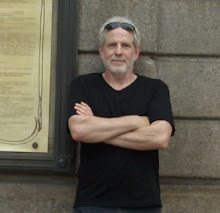In my opinion, the three most unpleasant expressions in the English language are, "There's smoke pouring out of your hood", "Somebody from the IRS called", and "Oh, that looks great. Can I have a bite?" And frankly, I'm far more tolerant of greedy auto mechanics and rapacious tax auditors than of dinner companions who want samples. I'm eating here, folks, not selling carpet.
The first time I took my wife to a restaurant, she innocently asked for a taste of my Beef Teriyaki. It required every ounce of restraint I possessed to smile politely and offer her a bite instead of stabbing her hand with a fork. My suppressed rage eventually subsided, but I made sure my steak knife was close by in case she came back for more. Over the years, I've taken fewer pains to hide my hostility
What's ironic is that trading food with my wife is a bargain. She always returns more than she gets and sometimes offers a taste without demanding compensation. I, on the other hand, require a notarized affidavit before I'll ante up, a pre-victual agreement with a penalty clause assuring forfeiture of the entire entree if the return portion is too small or not immediately forthcoming.
Now I'm no Sigmund Freud (I'm no Fred Astaire either, but that's another story), yet even I realize this paranoia didn't arise in a vacuum. It arose at 45 Yale St. in Holyoke, Massachusetts where I grew up surrounded by my parents and older brother, the villain of this saga.
Western Mass. in the '50s wasn't exactly a culinary hotbed. It wasn't even a culinary sleeping bag except for Mel's. Mel's is a small Italian restaurant in Holyoke whose specialties include spaghetti in a spicy red sauce, meatballs, roast chicken, and...French fries. Now I know that by today's health-obsessed standards, a dinner that includes both spaghetti and French fries is as unthinkable as a meal of poached salmon and motor oil, but back then, the greasy starch was a basic food group, as important to growing young bodies as red meat, butter, and Twinkies.
We would take out from Mel's about once a week. I can recall few more joyous moments of my childhood than contemplating those two enormous meatballs floating on a sea of glistening pasta, with a hefty portion of my beloved fries on the side, steaming under a squirt of ketchup. Then it would happen.
"Hey, Jeff! Look at that huge dog in the driveway!"
Alas, I was the perennial sucker. I'd automatically turn to stare out the window, and by the time I looked back, most of my stash had disappeared. My brother would be in convulsions - half with laughter, HALF FROM CHOKING ON MY FRIES!
But even the biggest sap catches on eventually. One night when I was nine, I feigned distraction and bashed him solidly across the hand with a serving spoon as he went in for the kill. I didn't inflict any real damage, but the dynamics of our dining relationship changed dramatically. Mealtime evolved from a cordial family gathering into a tense battle of will, no quarter asked, none given. It must have been a remarkable sight - the two of us sitting there in stony silence, eyes locked in a steely glare, left arm curled protectively around the plate, right hand clutching the fork like a shiv, just a couple of lifers in Alcatraz. This standoff continued until he went off to boarding school, and I could again eat in peace.
But once you're accustomed to dining in full combat readiness, you can never fully relax again. This is why I still regard every request for my food, no matter how innocuous, with suspicion and fear. I'd like to think, however, that I've mellowed over the years and become a more genial fellow to break bread with. I've learned to curb my more violent tendencies and conceal my outrage, save for a telltale blink or two. As for my brother, we've since become very close and can now enjoy a meal together provided nobody makes any sudden moves.
